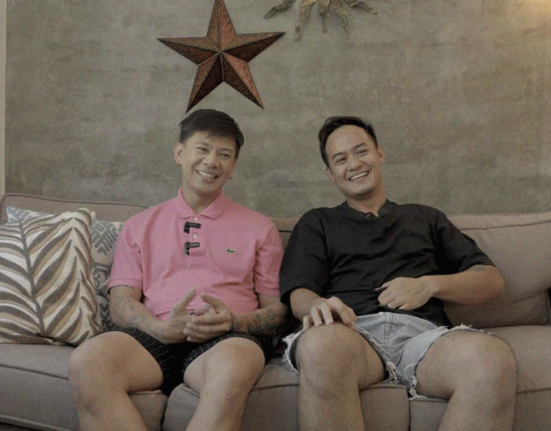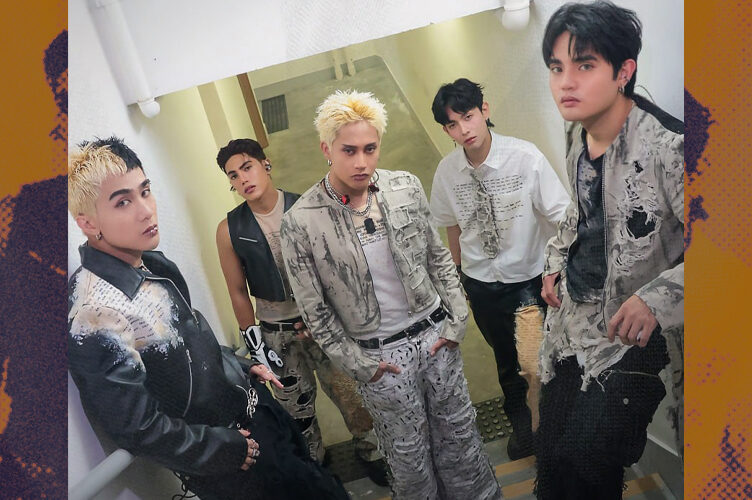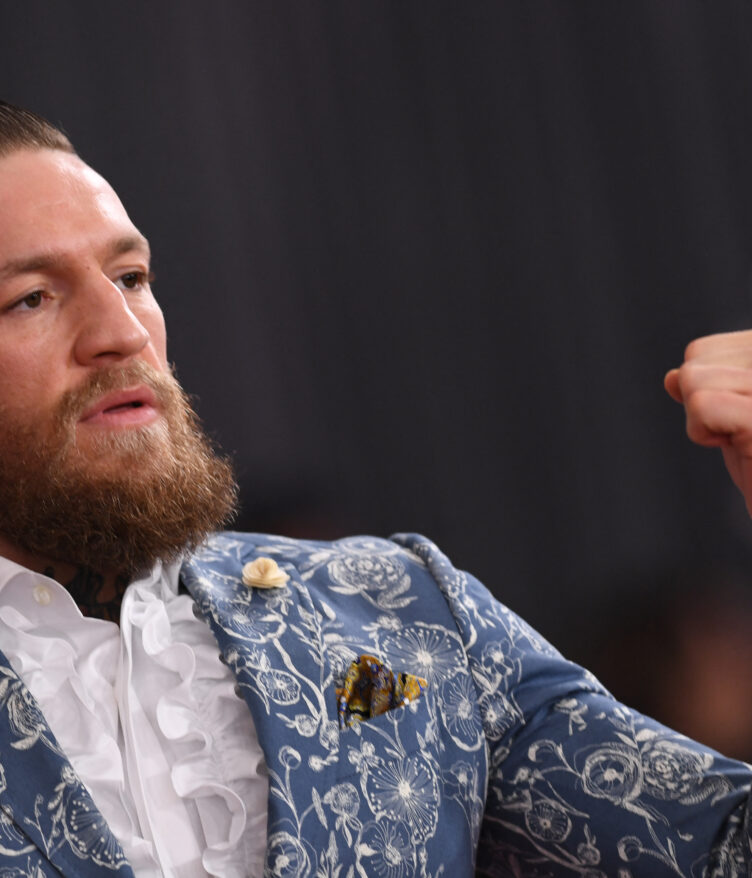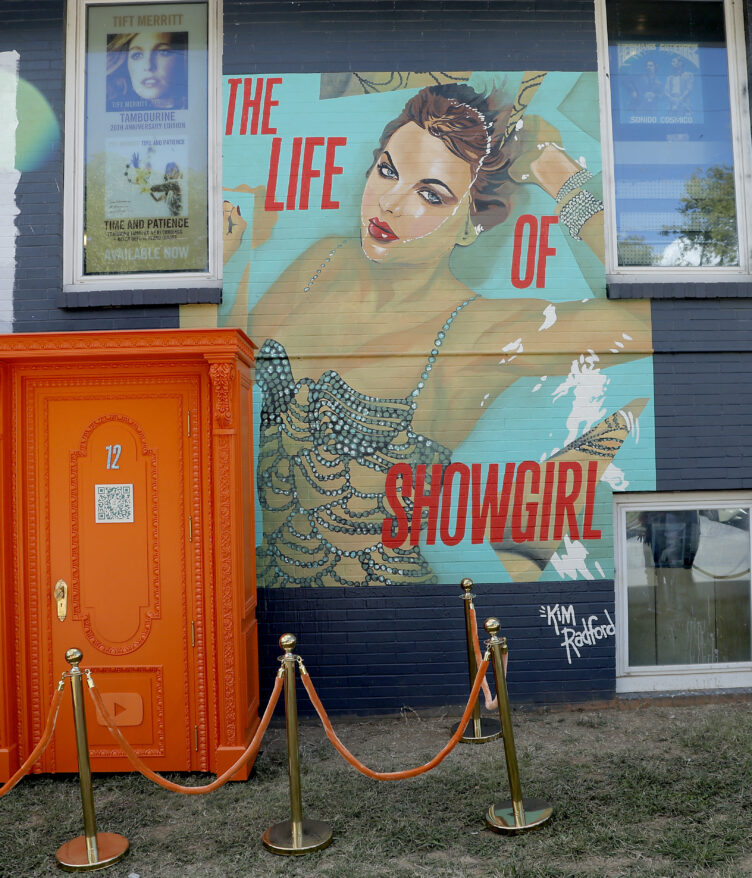LET’S start this story by defining what a family is.
Merriam Webster dictionary says a family is “the basic unit in society traditionally consisting of two parents rearing their children.” Another definition of it is “a group of individuals living under one roof and usually under one head.”
A family is not limited to a father, mother, and their children. And not all family members need to be living in the same household, too.
Our grandparents, aunties, uncles, and cousins are part of our family although they live in other places in the country or abroad. Sometimes, we even consider our friends, colleagues, or community family even though we’re not blood-related.
Anyone can be considered family because what matters in this circle is that the members love and support each other.
This is what it is like in the Cabrera-Ukul household, a warm and loving unit composed of one son and two dads.
How they met

The love story of Filipino Daniel Cabrera and Brunei national Marcos Ukul started with a simple invitation to a party in Brunei 16 years ago.
Cabrera worked in Brunei for eight years. It was both a blessing and a heartbreak for him as he had to be away from his family.
While he had a group of friends and community in Brunei, Cabrera said he still felt lonely and that he wanted to meet a special someone. A friend of his came to the rescue by bringing him to a party.
As fate would have it, Ukul was also invited to the event by a friend. That night, Cabrera and Ukul were struck by Cupid’s arrow.
“Walang ligawan na nangyari. Nagdesisyon na lang talaga kami [na], ‘Oh sige tayo na?’ ‘Sige tayo na,’”Cabrera told republicasia.
Ukul joined Cabrera when the latter went back to the Philippines when his mom died. However, Ukul’s stay has posed its own challenges.
The Philippines has a 13a visa that allows foreign spouses of Filipino nationals to live permanently in the country. But in Cabrera and Ukul’s case, this won’t apply as same-sex marriage is not yet legal in the Philippines.
Three bills pushing to recognize same-sex unions in the country have been filed in Congress. If these are enacted into law, same-sex couples in civil unions could have the same benefits granted to married couples in the country.
But since these are still pending, Cabrera said they have to keep renewing Ukul’s tourist visa so that they could be together in the Philippines.
“‘Yun ‘yung challenge namin as a gay couple in the Philippines. Madaming challenges at isa na is itong proseso na we would love for us to get married and [do] everything legal for him to stay longer in the Philippines pero hindi namin magawa,” he said.
The two are planning to get married in the United States. If only same-sex marriage is legal in the Philippines, Cabrera said he could picture them together doing the same preparations as straight couples who would get ready for their wedding, such as food tasting.
“That’s one of the dreams siguro, na magkaroon din kami nun. Na mabigyan kami ng pagkakataon na ma-experience ‘yun,” he said.
Love for kids
The couple love doing things together, and one of their favorite activities is to volunteer at the CRIBS Foundation, an organization committed to the care and development, healing, and recovery of children in need of special protection.
Kids are close to their heart so they volunteer to take care of them, especially babies, every Sunday.
Cabrera also uses his skills as a director and choreographer for TV shows, events, and commercials to conduct shows and dance classes for the kids in the foundation.
Cabrera and Ukul eventually became foster parents after one of the heads of CRIBS foundation noticed the couple’s love for kids, and introduced them to the idea.
Foster care, as defined by Foster Care Act of 2012, is “the provision of planned temporary substitute parental care to a child by a foster parent.”
The difference between foster care and adoption is that the former is a temporary commitment, while the latter is a permanent one.
Cabrera said that they have always wanted to have their own kid, which is why they underwent the process to become foster parents.
Becoming dads to a son
But fate had other plans for the couple.
In 2019, they became dads to a boy named Aslan. But it was not through foster parenting that they got their son.

Cabrera is technically the legal guardian of Aslan, but he and Ukul consider themselves to be the boy’s fathers.
Cabrera said he would rather not detail how Aslan entered their lives for privacy reasons. What is clear is that they consider themselves family.
“Marami talagang nagtatanong kung paano napunta sa amin si Aslan. Sabi ko, I think ang importante lang is God chose us to be his parents,” he said.
Aslan’s arrival in their lives was an answered prayer, he said.
“God might not give us what women would have, you know, the beautiful way of giving birth and all that, but I think God would create a way for him to provide [for] people who really need [a child],” he said.
But a picture of a family with two dads and one son still makes people’s heads turn, Cabrera noted.
“There’s a lot of people who’d still– you know, look at us. In the mall, there’s two dads, playing with a kid. Masyado din kasing na-bring up na baka it’s not really normal for two ‘fathers’ to have a child,” he said.
Regardless, what matters for Cabrera and Ukul is that they have Aslan in their family, and that they have friends and a community that fully support them.
Challenges for first-time parents
Raising Aslan has been a challenge for the couple, especially when the COVID-19 pandemic hit.
There were a lot of things that both Cabrera and Ukul had to learn as first-time parents. Cabrera shared that they turned to books and vlogs to delve into parenting, but they noticed that every child has a unique personality and needs.
“Maraming bagay si Aslan na hindi namin na-experience, na sinasabi nilang, ‘Hindi, ganito nung first few weeks dapat ganyan ganyan yung bata,’” he noted.
It was also a challenge for them to acquire their son’s necessities like milk and diapers because of lockdown restrictions that were imposed during the pandemic, he recalled.
But if there was one good thing about the pandemic, it was the opportunity to focus more on Aslan, he said.

“Nakita namin yung progress niya. Nakita namin na ang anak namin, ayaw niya talagang mag-medyas kahit malamig na. ‘Pag natutulog, ayaw niya mag-bonnet,” he shared.
There were also countless sleepless nights until the couple eventually figured out an effective way of taking care of their son. The couple agreed to take turns when caring for Aslan: Ukul takes the night shift, while Cabrera takes the morning shift.
“Hindi namin napag-uusapan ‘to, pero alam namin na. ‘Ito yung choreography natin ah. Ikaw diyan. Ikaw bahala sa pagtulog, sa pagpaligo, ako bahala sa ibang bagay,’” Cabrera said.
Aside from books and vlogs, the first-time parents were also guided by their friend Connie, who was also a mom.
“Ate Connie was there for us. I mean because she’s also a mom, syempre may female figure na present pa rin kay Aslan, which is good kasi talagang minsan may mga bagay na parang, ‘Jusko Lord, kaya ba namin ‘to?’” Cabrera said.
They will always be thankful to Connie for her help, he said.
What will they tell Aslan?
In cases like that of Cabrera and Ukul, one of the questions that would probably be asked of them is, would they tell their son the whole story about how he entered their lives?
For the couple, the response is yes; they want Aslan to know the truth.
“Kailangan din namin siyang mainform na, ‘Look, you have two loving dads. May dalawang tatay na nagmamahal sayo.’ And I think that’s what’s important,” Cabrera said.
He said members of the LGBTQIA+ community can choose who will become part of their family, regardless if they are blood-related or not. And in their case, they have chosen the family that they have, and nothing is going to change that.
They are making sure that Aslan will grow up in a home filled with love, one that hopefully will turn him into a good person who will also help other people, he said.
Hope for the LGBTQIA+ community
Apart from the same-sex union bills, Cabrera hopes that the LGBTQIA+ community will get more support, particularly through the passage of laws that would protect its members.
One measure he mentioned is the proposed Sexual Orientation, Gender Identity, Gender Expression, or Sex Characteristics (SOGIESC) bill.
The bill, which seeks to prohibit discrimination against people on the basis of their SOGIESC, was approved by the House Committee on Women and Gender Equality last May, but it still has a long way to go before it could be approved by both houses of Congress.
“Sino pa ba ang tutulong? Sino pa ba ang maglelegalize ng mga ‘yan?” Cabrera said.
“We need someone up there to help us. Look at us, we are two couples who have been together for 16 years and have a kid. Paano siya mapo-proteksyonan ng law? Paano ako mapo-proteksyonan ng law?” he continued.
The world recently celebrated Pride Month where it recognized the members of the LGBTQIA+ community and their journey in fighting equal rights and justice.
Cabrera hopes that the support given to them will not end after that month.
“I really hope for equality. Oo, gasgas na gasgas nang salita pero kasi nga hindi pa rin namin nakukuha eh? Kahit tanggap kami ng karamihan, hindi pa rin namin siya nararamdaman dahil our laws need to be strengthened,” he said.
Message to each other, to Aslan
Coincidentally, Cabrera and Ukul were celebrating their anniversary on the day of their interview with republicasia last June 17.
As a message to his partner, Cabrera told Ukul that he hopes they will continue what they’ve both been doing, as it is what has kept them together for more than a decade.

“Thank you for everything. I think that’s the only thing I can really tell him, just because I think every day is going to be a good journey for the two of us. And I think I’m excited for 16 or 61 more years together,” he said.
Ukul, meanwhile, had a short, sweet reply. He wants them to “stay old together forever.”
The two dads also expressed how much they love their son.
“I’ll love you and I want you to be good,” Ukul said.
Cabrera assured Aslan that they would help him grow and would never leave his side.
“Whatever happens, nandito lang kami, kasi kami yung tatay mo. Kami yung ama mo. Hindi na naman kailangan sabihin na mahal ka namin kasi alam kong nararamdaman niya ‘yun,” he said.
How useful was this post?
Click on a star to rate it!
Average rating 0 / 5. Vote count: 0
No votes so far! Be the first to rate this post.
We are sorry that this post was not useful for you!
Let us improve this post!
Tell us how we can improve this post?









